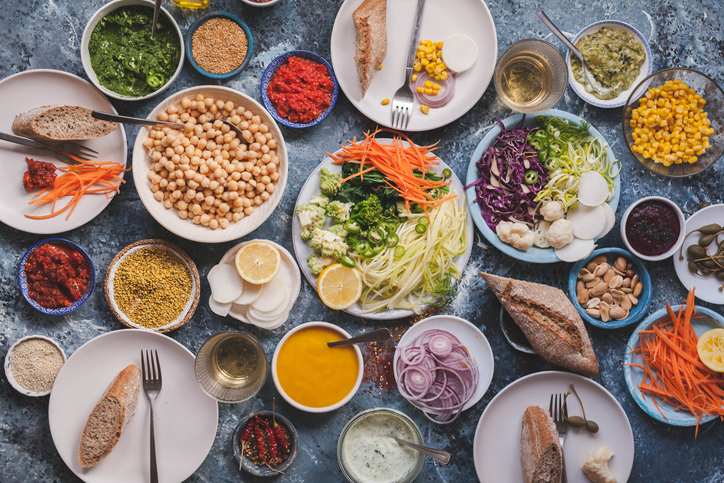Flip on Netflix and you’ll likely be confronted with a slew of documentaries touting the benefits of plant-based diets. From the Forks Over Knives movement to growing concern about the health of our planet and climate change, the adoption of plant-based diets is increasing.
Though the benefits of plant-based eating have health benefits, does that make the vegan or vegetarian lifestyle the right choice for you? Here are some things to consider before changing your diet.
What is a Plant-Based Diet?
Before we explore the benefits and drawbacks of a plant-based diet, let’s explore what this diet entails. It may seem straightforward, but there are several plant-based diets to consider, including:
Semi-vegetarian/Flexitarian: This diet occasionally includes meat, poultry and seafood and regularly includes dairy and eggs.
Pescatarian: This diet includes eggs, seafood and dairy, but no meat or poultry
Vegetarian: This diet includes eggs and dairy products, but no meat, poultry or seafood
Vegan: This diet includes no animal products
Adding more fruits and vegetables to your diet has several health benefits, according to Harvard Health, including a lower risk of coronary artery disease, increased longevity, lower blood pressure and a lower risk of diabetes.
What to Consider Before Switching Your Diet
You might think you need to severely restrict your eating habits, give up your favorite foods or devote more of your budget to buying different foods. But Harvard Health notes that making diet changes can simply mean adding more foods from plant sources or swapping out what you’re currently eating for healthier options. For example, replacing white rice or bread with brown rice or whole-grain rice or oatmeal instead of processed breakfast cereals.
All plant-based diets focus on the consumption of foods like fruits, vegetables, nuts, whole grains, legumes, and healthy fats like olive oil and avocado. If you choose to adopt a vegan lifestyle, you may need to add supplements to ensure you receive the necessary nutrition. Before you make any major changes to your diet, talk to your doctor.
Plant-Based Diet Tips
Ready to add more fruits and vegetables to your diet? Try these tips:
Focus on vegetables: Harvard recommends filling half your plate with vegetables at lunch and dinner. Focus on eating an array of colors.
Rethink meat: Instead of having meat as a main dish, try having it as a side or eating it in smaller amounts.
Try one night: If going completely vegetarian or vegan right away seems too daunting, try cooking a vegetarian meal once or twice a week. Build your meals around legumes, beans or whole grains.
More than lettuce: Try building your meals around salads. Remember that your salads don’t have to be full of lettuce. Try kale, swiss chard, spinach, herbs and many more for a tasty salad.
Once you make these small changes, eating more fruits and vegetables will become easier over time and you could start seeing health benefits.











